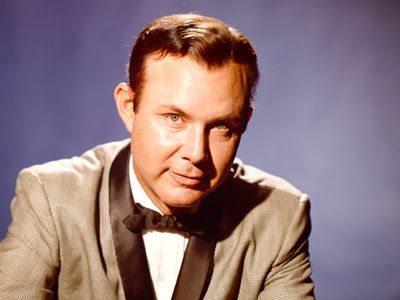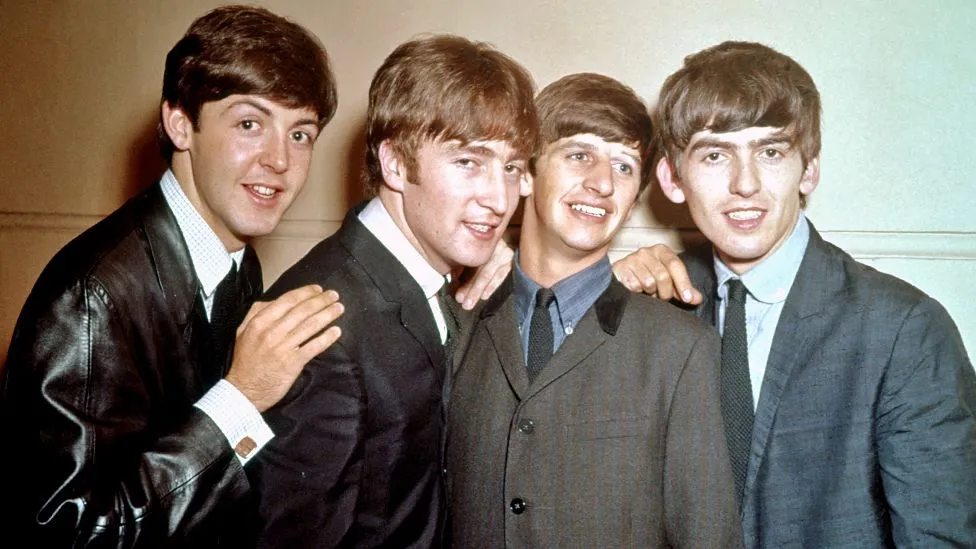‘He’ll Have to Go’ took over country & pop charts in 1960
In 1960, Jim Reeves released a tune that would transform both country and pop music landscapes—"He'll Have to Go."
With its silky vocals and rich orchestration, the single became a sensation that connected two musical worlds, establishing Reeves as an icon. His tone? Absolute silk. His approach? Elegant and refined. And the track? It turned into a cultural landmark, securing Jim's place among Nashville's greatest talents.
The origins of He'll Have to Go

Jim Reeves wasn't an ordinary country vocalist. Known as "Gentleman Jim," he possessed a remarkable talent for combining elegance with the genuine emotion of country music.
Born in Texas, he worked as a radio host before pursuing music full-time. When "He'll Have to Go" hit the airwaves, he was already established in country circles, but this song lifted him to new heights. The appeal went beyond the melody—it encompassed his entire presence.
The story behind "He'll Have to Go" matches the song's captivating nature. Joe and Audrey Allison wrote it after Joe witnessed a scene in a bar. A man was speaking to his sweetheart on the phone, asking her to move closer to the receiver, trying to repair their relationship.
This became the song's core—starting with, "Put your sweet lips a little closer to the phone." The line is uncomplicated, yet captures that perfect combination of yearning and rawness that resonated with audiences.
A significant shift for country music

When Jim performed it, he didn't simply deliver lyrics—he lived them. The arrangement was sparse, just enough accompaniment to highlight his voice. Chet Atkins, who handled production, kept everything understated, creating an intimate, moving piece that captivated listeners.
The single rapidly gained popularity, reaching #1 on the Billboard Country Chart and crossing into the Pop Chart at #2. This marked a pivotal moment for country music, proving it could reach mainstream success while maintaining its authenticity.
The influence of "He'll Have to Go" extended beyond chart positions. It became a cultural reference point that people connected with regardless of their background. The heartache and pleading are universal themes. Jim's performance strikes that ideal balance between assurance and openness. He never needed to exaggerate—his voice naturally communicated everything.
Following the track's success, Jim Reeves became a worldwide star. He performed across the globe, introducing country music to fresh audiences. He evolved beyond a country performer into a global representative for the genre.
The sleek, polished sound he brought to country music helped reshape it, showing that country could be sophisticated, emotional, and popular all at once.
But let's face reality — "He'll Have to Go" wasn't merely a success; it was a revolutionary track. It assisted in making the Nashville Sound popular—a more refined, symphonic approach to country music that mainstream listeners found more accessible. This approach became a template for future musicians aiming to blend country with additional musical styles.
The track's impact extended further. It prompted numerous interpretations by performers including Elvis Presley and Ry Cooder. Yet it must be stated—nobody performed it like Jim. His rendition remains the definitive version.
How Jim Reeves died

Unfortunately, Jim's career ended abruptly in 1964 when he perished in an aircraft accident at just 40 years of age. His passing created an enormous gap, but his recordings — particularly "He'll Have to Go"—have sustained his musical heritage.
The single remained on jukeboxes and radio playlists for decades, guaranteeing that his mellow baritone would stay in public memory. Jim was later inducted into the Country Music Hall of Fame, confirming his status among the genre's greatest performers.
Currently, "He'll Have to Go" remains one of the most cherished country songs ever recorded. It has appeared in films, television programs, and advertisements, bringing it to younger audiences. The beauty of the song lies in its directness—pure emotion wrapped in an ageless tune. It stands as one of those rare compositions that maintains its appeal through time.
Jim's skill at merging country with pop elements represents a contribution that continues to influence music today. Performers such as Shania Twain, Taylor Swift, and Keith Urban are indebted to Jim Reeves for demonstrating how country music could reach broader audiences while keeping its core identity. "He'll Have to Go" wasn't just a chart success—it marked a significant point in musical development. It will remain a standard for generations to come.
Jim Reeves demonstrated that country music could be heartfelt, polished, and widely appealing. "He'll Have to Go" wasn't simply a song—it sparked a shift in the industry. Its continuing relevance showcases the lasting ability of music to unite and motivate listeners.
Share this so people unfamiliar with this masterpiece can experience Jim Reeves' remarkable talent.



